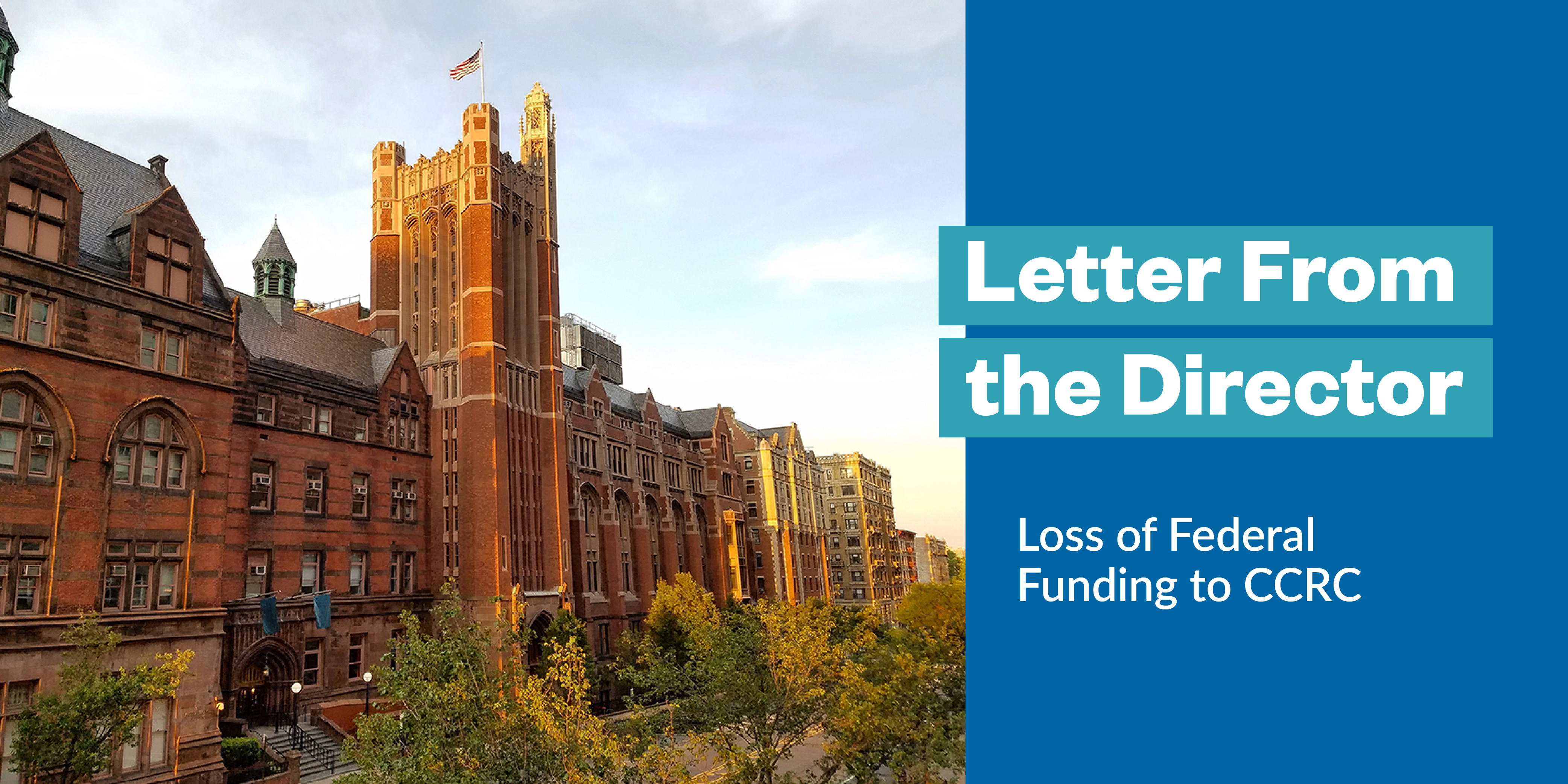On March 7, the Community College Research Center (CCRC) was notified by the U.S.
Department of Education that four of its grants from the Institute of Education Sciences (IES) had been terminated. The actions were tied to a larger effort by the Trump administration to cancel $400 million in grants that were awarded to Columbia University. CCRC is based at Teachers College, a graduate school of education, health, and psychology that is affiliated with Columbia but legally, administratively, and financially separate. I often tell friends that Teachers College is across the street but feels miles away.
A few weeks prior to our grant cancellations, the Department of Education announced it was ending the Regional Education Laboratories (REL) program—also administered by IES— because of “woke” government spending. The RELs support efforts by state departments of education, school districts, and other education stakeholders across the country to conduct and use research to improve learner outcomes. REL Northwest contracted with CCRC to pilot-test a professional development program for community college faculty to see if it improved classroom teaching and student learning. This work was also terminated.
It is hard to overstate the importance of IES grants and contracts to a research center like CCRC. Until recently, IES provided critical support for our mission: to conduct research that strengthens community colleges and helps them improve education and employment outcomes for their students. IES sets high standards for determining what works and encourages collaborations between researchers and education providers that inform policy and practice. The cancelled projects are typical of this agenda:
- A randomized controlled trial of the federal work/study program—the first rigorous study since its creation by Congress in 1964—to measure its effects on student enrollment, persistence, degree completion, and employment.
- A partnership with the Commonwealth of Virginia to study a state-funded initiative to help low income students access short-term training programs that prepare them for jobs in high-demand occupations.
- Leadership of a national research network that is supporting efforts by states and community colleges to rebuild enrollments and address students’ academic needs in the wake of the COVID-19 pandemic.
- A training program for graduate students who are preparing for careers in applied higher education research, in which they conduct year-long apprenticeships with state and local governments and other organizations to learn how research is used to improve higher education policy and practice.
These grants—and the REL contract mentioned above—were more than halfway complete when we were told to stop work. The terminations ignored the interests of participating states and colleges and left research goals unfulfilled. The terminations did nothing to address perceived problems at Columbia, nor did they challenge “woke” ideology, as our projects were nonideological to begin with. Like all our work, they were designed to help the country’s nearly 1,000 community colleges to better serve their students.
Last week, Teachers College submitted an administrative appeal to the Department of Education to restore CCRC’s grant funding. We do not know how long the process will take but are hopeful that fair minds will rule in our favor. Because CCRC is based at Teachers College, people often assume we draw subsidies from an endowment or other sources. In fact, CCRC is a “soft money” organization, meaning that we depend entirely on grants and contracts from government and philanthropy. We are relying on foundation-funded projects to get us through this period, but the permanent loss of IES funding would leave a hole that no foundation could fill.
Congress created IES to support education research, evaluation, and dissemination activities in areas of demonstrated national need that “conform to high standards of quality, integrity, and accuracy” and “are objective, secular, neutral, and nonideological and are free of partisan political influence.” That mission is as important today as when IES was founded. It is a mission that CCRC upholds, and one that we hope is soon reaffirmed by this administration and Congress.
Thomas Brock is the director of CCRC and was commissioner of the National Center for Education Research at IES from 2013 to 2018.





